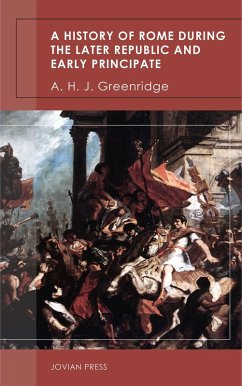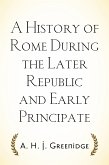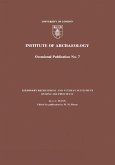The period of Roman history on which we now enter is, like so many that had preceded it, a period of revolt, directly aimed against the existing conditions of society and, through the means taken to satisfy the fresh wants and to alleviate the suddenly realised, if not suddenly created, miseries of the time, indirectly affecting the structure of the body politic. The difference between the social movement of the present and that of the past may be justly described as one of degree, in so far as there was not a single element of discontent visible in the revolution commencing with the Gracchi and ending with Caesar that had not been present in the earlier epochs of social and political agitation. The burden of military service, the curse of debt, the poverty of an agrarian proletariate, the hunger for land, the striving of the artisan and the merchant after better conditions of labour and of trade.the separate cries of discontent that find their unison in a protest against the monopoly of office and the narrow or selfish rule of a dominant class, and thus gain a significance as much political as social.all these plaints had filled the air at the time when Caius Licinius near the middle of the fourth century, and Appius Claudius at its close, evolved their projects of reform...
Dieser Download kann aus rechtlichen Gründen nur mit Rechnungsadresse in A, B, BG, CY, CZ, D, DK, EW, E, FIN, F, GR, H, IRL, I, LT, L, LR, M, NL, PL, P, R, S, SLO, SK ausgeliefert werden.









